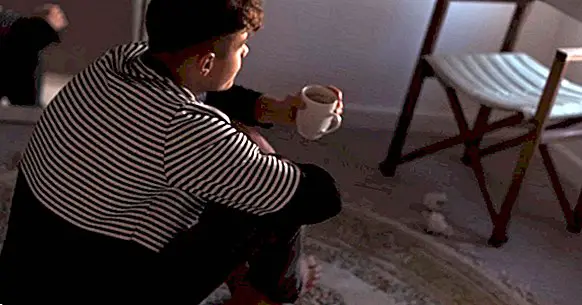Study by vocation or by work output?
There was a simpler time in which it was not so hard to choose a job orientation . If your father had a workshop, you learned the trade and you ended up inheriting it, if you were so lucky as to be able to access higher education, you joined a market not collapsed, and if everything failed, there was always the possibility of accessing certain public positions or private, perhaps less glamorous but equally worthy.
However, at a time when there are so many obstacles to perform the dreaded role of self-employed and with fierce competition in the labor market, there are increasingly more graduates prepared who often have to look for luck beyond the Pyrenees. Choosing a career path is an increasingly dramatic decision. And when it's time to decide ...it is better to choose to study what we like, or what is more likely to give us work well paid? It is not a simple question to answer, but in it a good part of our life goes.
- Maybe you're interested: "Why study Psychology? 10 points that you should value"
Choose studies by vocation or by work output?
Nowadays aptitude tests are done, academic performance is valued according to the success in different subjects, sporting and artistic capacities ... to, in general, end up giving the as successful as generic advice: do what you like.
Yes, it is important to work on what we like, not only because we will make it more happy and we will spend more time happy (which is not a bit of turkey) but because a high motivation for the task to perform predicts a greater probability of success, by predisposing us to learn about it, overcome failures, etc. In other words, we are good at what we like. But beyond the child who asks the kings for a stethoscope at age 5 ... Do our students know what they like?
The question is not trivial, since, if I like, say, psychology, I will need to have a bachelor's degree in health sciences, and to access it, it will be convenient to have studied the electives related to it in 4th of ESO, When I fill in the registration when finishing 3rd ... So, if I want to be a psychologist, I'd better discover it before I'm 15 years old or have the luck to have done science because, according to my counselor, "it opens more doors".
The uncertainty when deciding on a profession
However, how will a person so inexperienced choose a profession , among all those that exist, with the information that you can have? Normally, we usually look at the subjects in which the kids stand out. If we are lucky enough to be distributed in a uniform way corresponding to one of the three or four baccalaureates, we point our first clue.
Here we encounter a certain logic problem. On the one hand, it is a simplistic vision to associate jobs with their corresponding baccalaureates. In the case of psychology, science career, what is more important that you like? Mitosis and integrals, or contact with people? What competence is more important, mental calculation or empathy? What should a future journalist, a humanities career, like the most? Kant and the etymology, or the present and the narrative?
Do not get us wrong: all competition is well received and knowing always adds up (although it does take place, according to the psychology of memory), but we may fall into a fallacy if we intend to encorse professional outings to primary subjects .
Perhaps the most advisable thing was to create an environment that facilitated more skills than the academic one. That not everything was "behave well" and pass exams (which, I insist, is equally important). That motivations be attended by those skills such as creativity, social skills, humor, initiative, effort ... not to enter the eternal debate of those subjects so unworthily undervalued in the curriculum, such as artistic education, music, physical education ...
- Maybe you're interested: "What to study? Advice to decide a university career (or not)"
The key is to detect sources of motivation
Each professional exit usually has some very specific skills and abilities, so it can be a mistake to stop attending to the student's motivation for certain elements that can be surprisingly crucial later on. It is vital that a student be able to detect those competences that motivate , since a high motivation for the task to perform is a predictor of success and well-being.
Therefore, it is the responsibility of educators to establish an environment that facilitates the deployment of the different competences that the student can develop, and while schools and other formal learning environments adapt to these new times, parents, monitors and psychologists have the honor to complement the work. An environment based on passive education will hardly be adequate for students to develop areas of interest, and therefore much of their potential will be lost.
And it is that, although at an early age we do not have to know how to effectively choose how we want to orient our lives, it is a key stage to develop autonomously areas of experimentation, curiosity and personal interests. that later on they will become talents .



















